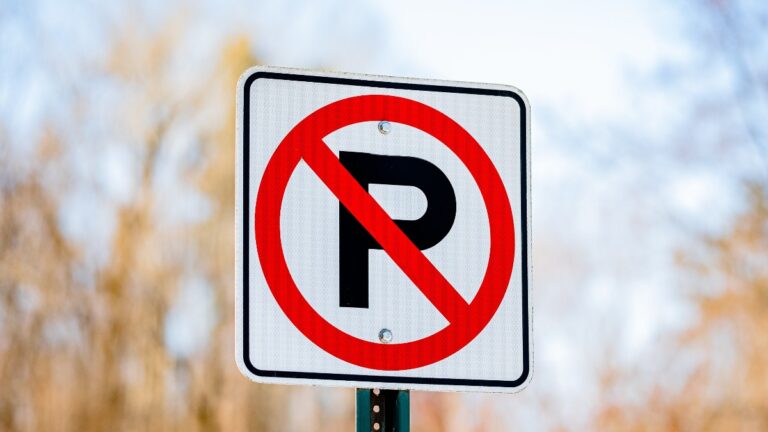What Is The Seller Registration Number On A Bill Of Sale? Explained
Chances are you are familiar with or have heard of a bill of sale. It’s a legal document used for the transfer of property like cars, boats, and equipment from one party to another. Many States have the bill of sale templates for people’s convenience. Depending on your state, part of the information you need to provide may include the seller registration number. Many people don’t understand what this means and don’t know what to fill. If you are one of such people, you’ll learn what bill of sale seller registration means in this article.
The seller registration number on the bill of sale refers to the license number of the vehicle being sold. It is required in States where the license plate is required to be transferred with a car during the sale.
A bill of sale is beneficial to both the seller and the buyer. Depending on your state, a bill of sale may be a legal requirement when selling a car. In this article, you’ll learn all you need to learn about a bill of sale.
What Is A Bill Of Sale?
As mentioned earlier, a bill of sale is a legal document used for the transfer of property, especially for those with high value. While it can be used for a wide range of goods, it’s common to see the bill of sale used for cars, trucks, boats, other recreational vehicles, and equipment.
The terms of the agreement of the deal are outlined in a bill of sale, including identifying information about the seller and buyer. Other information to be provided include the selling price and date of the transfer.
Since a bill of sale is a record of the transaction completed, it serves as both a receipt and an invoice. At the end of the transaction, the buyer and seller should have identical copies of the bill of sale.
The most important benefit of a bill of sale is the liability it frees sellers from. It also provides buyers with proof of ownership. So, using a bill of sale for a transaction can never be a bad idea.
Is A Bill Of Sale Necessary?
In some States, you are legally required to fill out a bill of sale when selling personal property like motor cars. And you’ll find a list of such States below:
- Alabama
- Arkansas
- Colorado
- Connecticut
- Hawaii
- Idaho
- Maine
- Nebraska
- New York
- Ohio
- Rhode Island
- South Dakota
- Vermont
- Washington
- West Virginia
- Wyoming
If you stay in any of these states, you’ll need to use a bill of sale when selling your vehicle. Even if your state doesn’t require you to have a bill of sale, it’s highly recommended you create a bill of sale for your records.
What Is Seller Registration Number On Bill Of Sale?
For a bill of sale to be valid, it must contain important information about the transaction, for a car include vehicle details, VIN, odometer reading, and so on. More information about this will be provided below.
In some states, there is a space for seller registration numbers, something that tends to be a source of confusion for both the buyer and the seller. The seller registration number simply refers to the license registration number and is only required in States where the license plates must be included with vehicles as they are sold and transferred to another party.
In States where a license plate isn’t transferable during a sale, there is no reason to provide this information. Such States will also not include a seller registration number in their bill of sale template if they have one.

How To Fill A Bill Of Sale?
A quick search online will tell you whether your state has a bill of sale template. If you find a template online, it’s only a matter of downloading the template and providing the required information. If your State doesn’t have a template, you can create your own bill of sale by providing the necessary information or using the template of another State.
A typical bill of sale will require the following information:
Vehicle Details
This section will contain identifying information about the vehicle, such as model, color, and year of manufacture. This information is readily available on the registration and title of the vehicle to be sold.
Vehicle Identification Number (VIN)
The VIN is your vehicle’s unique identifier. Think of it as your vehicle’s fingerprint. You can find the VIN on the vehicle itself as well as the registration and certificate of title.
Odometer Reading
The odometer reading should be checked at the end of the sale and recorded. It’s important information that tells a lot about the state of a car’s engine and how much work it’s been subjected to. It’s not surprising that some fraudulent people try to change the odometer reading to increase the value of a car. Have your mechanic inspect any car you intend to buy, including whether the odometer has been tampered with.
Seller Registration Number (Explained Above)
If your state requires you to include the license plates with the car as it is sold and transferred, you’ll have to provide the license number here under the seller registration number. States that require registration numbers include Kentucky, Minnesota, Alaska, and California. In Delaware, sellers can transfer the license plates (for a fee) or retain them.
Payment Details
The agreed price must be included in the bill of sale. Also, state the agreed payment method, which may be a lump sum or installment. In most cases, the buyer will pay a lump sum but if you agree to installments, clearly state the agreed-upon terms in the bill of sale.
Terms And Conditions
It’s important you state whether you are providing any guarantee or warranty. Many people sell their car “as is” which means the vehicle is being sold in the condition it is at the time of the sale. Selling “as is” also means you aren’t making any guarantee or providing any warranty.
Seller’s Information
A bill of sale must include information about the seller. Such information includes the seller’s name, address, phone number, and signature.
Buyer’s Information
The buyer’s name, address, phone number, and signature should also be included in the bill of sale.
Duplicate The Bill Of Sale
All copies of a bill of sale must contain the exact same information. Both parties involved in the sale should have copies of the bill of sale.
Other Necessary Document
The bill of sale isn’t enough to legally transfer the ownership of a vehicle. For that to happen, the title of the car must be transferred. For those not familiar with the Certificate of Title, simply called title, it’s the document that establishes ownership of a vehicle. The buyer isn’t a legal owner until the title is transferred.
Usually, the title must be transferred 10 – 30 days after the sale of a car, depending on the State. Anything after that is late registration and will attract extra fees. And until you sign over the title, you are still legally responsible for the car. This means you are liable for any accidents or offenses committed with the car, such as overspeeding or illegal parking.
For this reason, it is recommended that the seller accompany the buyer to the local DMV office to complete the transfer of the title.
In many states, a bill of sale is required to transfer the title of a car. Some additional information about the vehicle may also be required when all these are completed. The seller sign on the existing title while a new one is issued in the name of the buyer after paying the associated fees. When all these are done and completed, the buyer becomes a legal owner of the vehicle.







